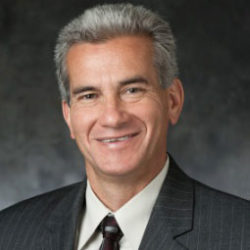
The demand for vehicles will always rely heavily on factors such as consumer spending, interest rates, energy prices, and technology innovation. While these factors certainly keep auto dealerships on their toes, there are also myriad factors that can weigh heavy on U.S. auto sales.
Despite a weak finish to 2018’s fourth quarter and the grim prediction of a down year, automakers are remaining optimistic. This article addresses an array of challenges dealerships should keep in mind as they enter the new year.
Challenge: Consumer Spending, Interest Rates, Energy Prices
Economic conditions are a significant factor used by analysts when forecasting auto sales. Fluctuating interest rates and energy prices can significantly alter consumer spending on durable goods. U.S. consumer spending on durable goods fell 1.4 percent in October of 2018 compared to the same month in 2017, and the bank prime loan rate rose 4.5 percent compared to this time last year. Furthermore, zero percent loan offers are becoming few and far between.
According to Edmunds analysts, in August of 2017, 14.6 percent of auto transactions were financed through zero percent loans, but this year that number dropped to 7.4 percent. Responding to the rising interest rates, big name manufacturers such as Toyota, Nissan, and Chrysler are moving away from zero percent financing offers. Since most consumers purchase vehicles with a loan or lease, this increase in interest rates will impact their ability to buy a car.
Opportunity: Continue to Diversify Revenue Sources
As economic conditions indefinitely continue to disrupt the traditional sales pipeline, analysts encourage dealerships to offset lost gross profit by diversifying their revenue sources. To stay ahead of the curve, experts recommend focusing on the finance and insurance department or more business-to-business partnerships unrelated to the traditional car sales process, such as fleet management.
An automobile’s service department is another overlooked opportunity to diversify revenue sources. In the evolving marketplace, consumers aren’t just purchasing cars at the dealership; they’re also turning to dealerships for the maintenance of their cars throughout their lifecycle. Growing your dealership’s service department should be an integral part of your business development plan.
Challenge: Force Majeure Events
Mother nature is notorious for disrupting the automotive industry. Many analysts blame the 4 percent decline reported for third quarter 2018 on the 2017 and 2018 hurricane season, which was one of the busiest and most destructive hurricane seasons on record. When a catastrophic event, such as a hurricane strikes, it can severely affect your dealership operations. According to an analysis by Cox Automotive, approximately 400,000 vehicles needed replacement after Hurricane Irma ripped through Florida. Hurricane Harvey added to the damage, destroying 300,000 to 500,000 vehicles in Houston.
Dealerships in affected areas not only have to replace damaged inventory, but they also need to account for missing day-to-day operations. Vehicle production plants that are in the path of a hurricane can also disrupt U.S. auto sales due to production losses.
Opportunity: Have a Preparedness Plan
The widespread media coverage of natural disasters has left dealership owners with few excuses to be unprepared for hurricanes, floods, and superstorms. While there is no way to avoid mother nature, there is a way to give your dealership the best chance at mitigating total devastation. We recommend that each of our clients develop a comprehensive business continuity plan to ensure that they are prepared to re-open their doors after a disaster.
Challenge: Used-Car Sales Continue to Outpace New Car Sales
According to Cox Automotive’s 2018 Used Car Market Report, used car sales were up 1.8 percent from 2017 and conversely, new car sales were down 2 percent. The bottom line is that dealerships are losing money on new vehicle sales. According to The National Automobile Dealers Association’s 2018 midyear report, the average gross profit on a new vehicle sale is about 5.6 percent of the sale price, while the average gross profit on a used vehicle sale is about 11.6 percent.
In a struggling economy, savvy shoppers are opting for certified pre-owned cars instead of up-sells and vehicles with higher margins. Some consumers are even choosing to hold on to vehicles for more extended periods due to reduced warranty lengths and long-term loans.
Opportunity: Emphasis on Aftermarket Services
Many dealerships will ultimately decide to invest in expanding their used vehicle departments; after all, these customers are more likely to return to the dealer for service or their next (new) car purchase. Whether you expand your used vehicle department or re-direct your attention to aftermarket services, remember that customer retention is key. Creating loyal customers is more critical than a one-time new car sale. Dealerships should also consider the opportunity behind profitable aftermarket services such as financing, insurance, and vehicle maintenance and repair.
Challenge: Alternative Ownership Models
A recent mobility survey by Cox Automotive found that new forms of ride-sharing, subscription services, and autonomous vehicles are expected to reduce personal car ownership, thus cutting into auto sales and ultimately transforming the industry.
Opportunity: Alternative Ownership Models!
Driverless technology and ride-sharing services have the potential to become a profitable revenue stream for your dealership. It’s time to start looking at these untapped services as an opportunity rather than a threat. Begin the process by researching how these changes are disrupting the traditional sales pipeline, and then consider the ways your dealership can leverage car subscriptions, car sharing, and other mobility services.
Dealerships that remain profitable, regardless of the state of the economy, identify challenges and seek out opportunities for continuous growth. If you would like to discuss the challenges and opportunities covered in this article, contact one of our professionals today.
Councilor, Buchanan & Mitchell (CBM) is a professional services firm delivering tax, accounting and business advisory expertise throughout the Mid-Atlantic region from offices in Bethesda, MD and Washington, DC.



